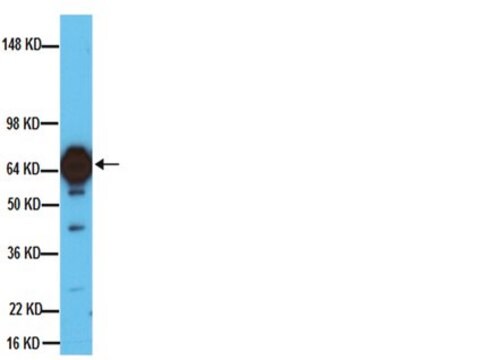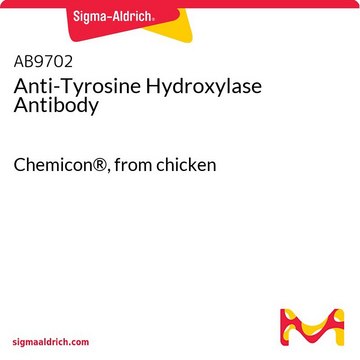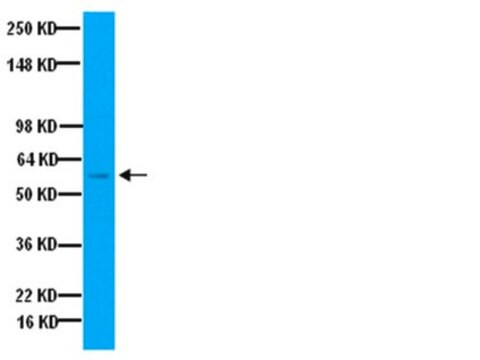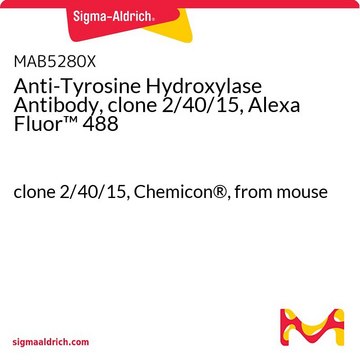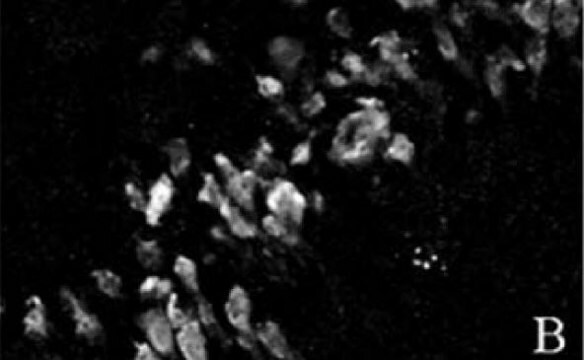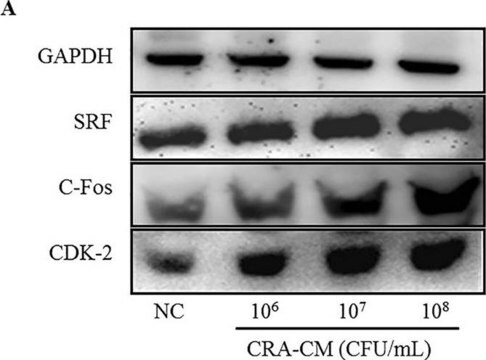IHCR1005-6
Anti-Tyrosine Hydroxylase Antibody, prediluted, clone LNC1
clone LNC1, Chemicon®, from mouse
About This Item
Productos recomendados
biological source
mouse
Quality Level
antibody form
purified antibody
antibody product type
primary antibodies
clone
LNC1, monoclonal
species reactivity
monkey, lizard, mouse, human, zebrafish, vole, frog, rat, chicken
manufacturer/tradename
Chemicon®
technique(s)
immunohistochemistry: suitable (paraffin)
isotype
IgG1κ
NCBI accession no.
UniProt accession no.
shipped in
wet ice
target post-translational modification
unmodified
General description
Specificity
Immunogen
Application
Pretreatment: Heat Induced Epitope Retrieval (HIER). Recommend Citrate Buffer, pH 6.0 (Cat. No. 21545). No signal was detected without Epitope retrieval.
Incubation: 30 minutes with IHC Select Detection Kits.
Tyrosine Hydroxylase has been prediluted for use as the primary antibody with Chemicon′s IHC Select Detection Kits and Protocols (Catalog Nos. DAB050, DET-HP1000, APR050, and DET-APR1000), but other supplier′s IHC detection systems may be used. For optimized protocol details, visit www.chemicon.com and select the protocols link under Cat. No.IHCR1005-6.
Neuroscience
Neuronal & Glial Markers
Physical form
Storage and Stability
Legal Information
Disclaimer
¿No encuentra el producto adecuado?
Pruebe nuestro Herramienta de selección de productos.
Optional
signalword
Warning
hcodes
Hazard Classifications
Aquatic Chronic 3 - Skin Sens. 1
Storage Class
12 - Non Combustible Liquids
wgk_germany
WGK 2
flash_point_f
Not applicable
flash_point_c
Not applicable
Certificados de análisis (COA)
Busque Certificados de análisis (COA) introduciendo el número de lote del producto. Los números de lote se encuentran en la etiqueta del producto después de las palabras «Lot» o «Batch»
¿Ya tiene este producto?
Encuentre la documentación para los productos que ha comprado recientemente en la Biblioteca de documentos.
Nuestro equipo de científicos tiene experiencia en todas las áreas de investigación: Ciencias de la vida, Ciencia de los materiales, Síntesis química, Cromatografía, Analítica y muchas otras.
Póngase en contacto con el Servicio técnico


